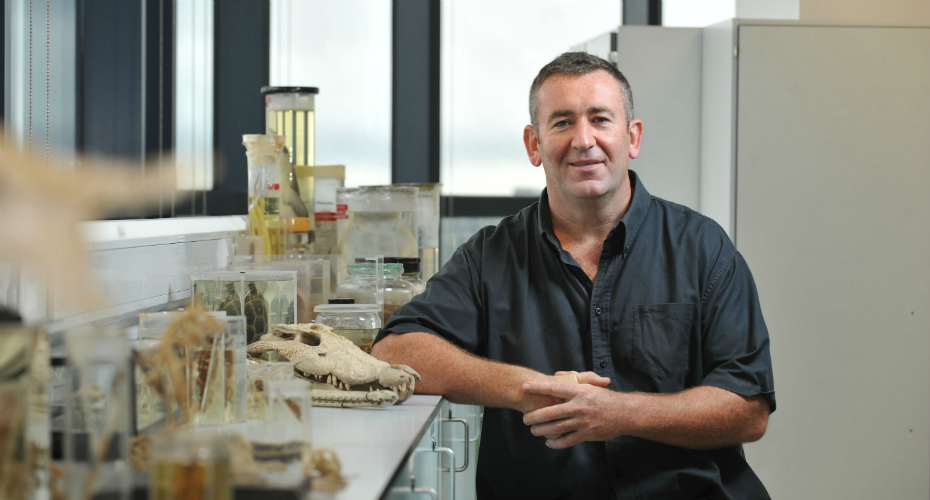Safeguarding our marine environment – Earth Day thoughts from ExeterMarine Strategy Lead, Professor Brendan Godley
Earth Day is an annual opportunity to celebrate the wonders of the natural world and stop, think and act for our environment. The theme for Earth Day 2020 is Climate Action and we need to think now about our changing climate, and actions we can take to protect our environment. Despite the current pandemic, this is something that the ExeterMarine community continues to focus on.
ExeterMarine is one of the unifying interdisciplinary themes at the University and hosts a diverse community of marine scientists, engineers, historians, writers, economists and medics. Members work together to break down boundaries in research and education regarding marine issues and open doors to collaborative research. They actively work to share, promote and facilitate world-leading, interdisciplinary and accessible marine research.
Brendan Godley is a Professor of Conservation Science whose research largely focuses on the study of marine vertebrates (turtles, mammals, birds and sharks). Since 2017, Brendan has been the Strategy Lead for ExeterMarine. The research from the group he is part of in our Penryn Campus underpinned designation of 26% of Gabon’s seas and 100% of the waters around Ascension Island for protection, and some of their long-term study sites for nesting turtles in Northern Cyprus and Ascension Island have also been given protected status.
Brendan was drawn to work in the area of conservation science as he was always fascinated by wildlife around him. He says: “My journey began on a student conservation expedition to Trinidad studying leatherback turtles; I have been deeply engaged in marine turtle conservation from that point. Since then the work of the wonderful students and postdocs I supervise has diversified into other marine species and the wider issues of migration, climate change, sustainable fisheries, plastic pollution and marine protected areas across the world.”
His experience as Strategy Lead for ExeterMarine has been rewarding. Brendan says: “This is because I interact with a range of individuals that want to have impact in the world across all of our nine interdisciplinary subthemes and acting as a group has been transformative. We have seen more students undertake our marine degrees, more businesses approaching us to work together and top academics seeking to relocate and join us. I’m proud that we are creating a network of collaborative experts for the future. This is making a difference in looking at the marine environment that supports all life on earth, and enables students to foster relationships in industry, setting them up for impactful careers as Exeter alumni.”
In terms of the challenges that our earth faces Brendan says: “It may not seem so, this year of all years, but climate change is the other great challenge of our generation. Once we have acted together as a global society for the COVID-19 challenge, so too must we act to mitigate the worst impacts of climate change if we are to avoid suffering profound economic and ecological damage. We still have an opportunity to showcase what a global network can achieve - to innovate and create new technologies to help us reduce the environmental impact of our daily lives and live more sustainably. Any action, if taken by enough people will make a difference.
“Climate Change is something that will impact all of us, and equally something that all of us can do something about. On campus, we adopt as many sustainable practices as possible – from moving away from disposable cups through to encouraging videoconferencing and travel by train. Why not pledge to make one change to your daily routine to help the environment? This could be turning down the radiators, switching energy provider, thinking about dietary choices or thinking about how you can make your post-lockdown journeys more sustainable.”
ExeterMarine continues to bring together, and support, a varied and passionate marine community. These include teams working on a vast range of issues: plastic pollution and development of the circular economy; changes in Antarctic sea ice, modelling atmospheric and ocean systems; and the health and wellbeing dividends of being by the sea. Brendan says: “We will continue to support, promote and share our work wherever possible, bringing together local communities, businesses and policy makers to help us all move forward and take action to protect our oceans for the benefit of all.”
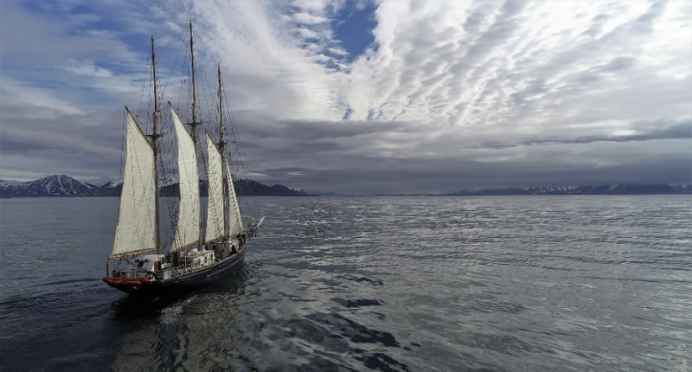
Blue Clipper. Credit: Lowenna Jones
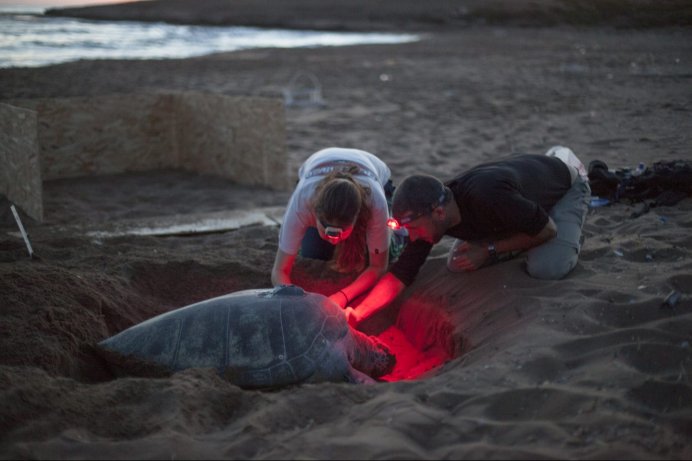
Nesting Turtle. Credit: SPOT
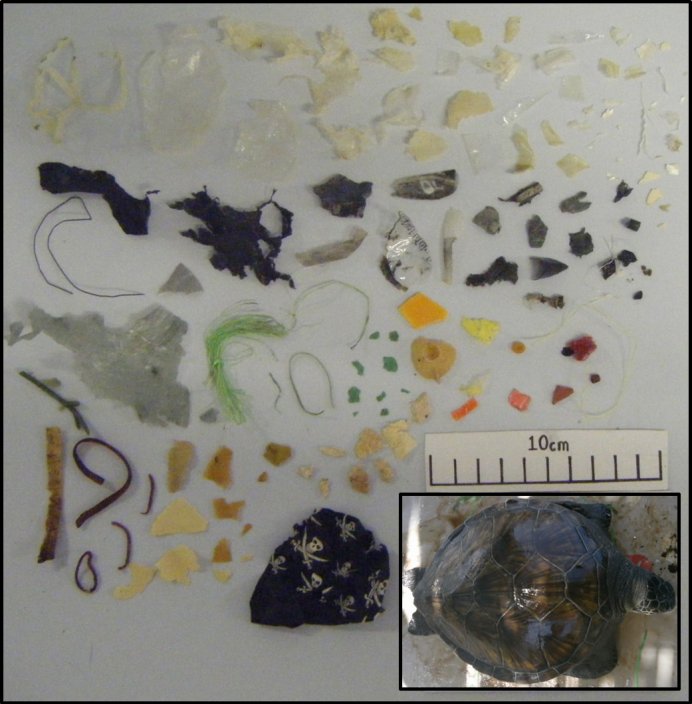
Plastic from Turtle guts. Credit: Emily Duncan.
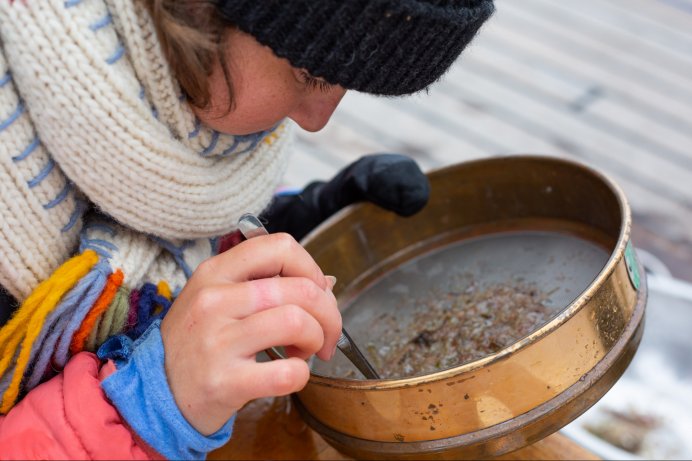
As part of the Sail Against Plastic Surveys Lowenna Jones investigates a sample. Credit: Ben Porter.
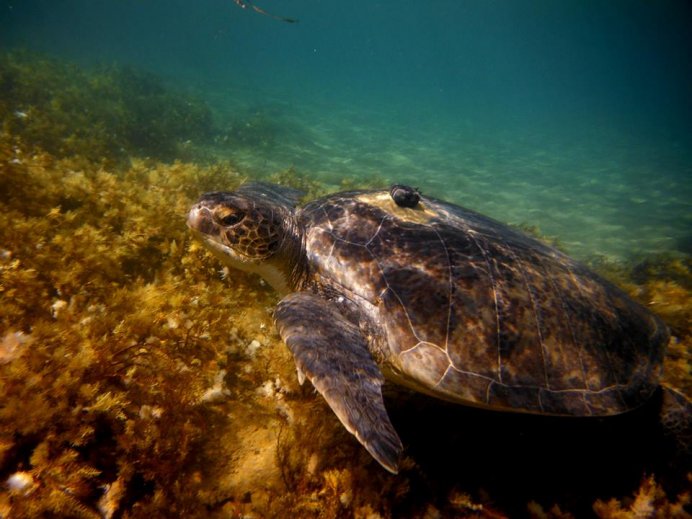
Satellite tracking of turtles. Credit: Emily Easman.

